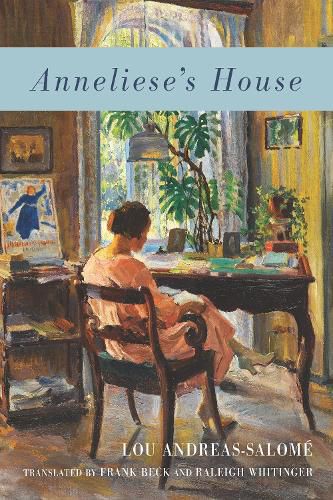Readings Newsletter
Become a Readings Member to make your shopping experience even easier.
Sign in or sign up for free!
You’re not far away from qualifying for FREE standard shipping within Australia
You’ve qualified for FREE standard shipping within Australia
The cart is loading…






Best known now for her involvement with Nietzsche, Rilke, and Freud, Lou Andreas-Salome (1861-1937) first became famous for fiction and criticism that engaged provocatively with the woman question. In recent years, the author’s literary treatment of the challenges facing women in a patriarchal society has awakened renewed interest. Anneliese’s House is the first English translation of her last and most masterful work of fiction, the 1921 Das Haus: Familiengeschichte vom Ende vorigen Jahrhunderts (The House: A Family Story from the End of the Nineteenth Century). Anneliese Branhardt, the book’s protagonist, long ago renounced a career as a pianist to raise a family with her physician husband, Frank. She worries about her son Balduin - an aspiring poet modeled on Rilke - and about her equally free-spirited daughter Gitta. She is haunted by memories of a daughter who died in childhood and anxious about a risky, late pregnancy. With her domestic harmony threatened by her own stirrings of autonomy and her children’s growing independence, Anneliese finds the future both frightening and promising. The edition is fully annotated, with a critical introduction and bibliography.
$9.00 standard shipping within Australia
FREE standard shipping within Australia for orders over $100.00
Express & International shipping calculated at checkout
Best known now for her involvement with Nietzsche, Rilke, and Freud, Lou Andreas-Salome (1861-1937) first became famous for fiction and criticism that engaged provocatively with the woman question. In recent years, the author’s literary treatment of the challenges facing women in a patriarchal society has awakened renewed interest. Anneliese’s House is the first English translation of her last and most masterful work of fiction, the 1921 Das Haus: Familiengeschichte vom Ende vorigen Jahrhunderts (The House: A Family Story from the End of the Nineteenth Century). Anneliese Branhardt, the book’s protagonist, long ago renounced a career as a pianist to raise a family with her physician husband, Frank. She worries about her son Balduin - an aspiring poet modeled on Rilke - and about her equally free-spirited daughter Gitta. She is haunted by memories of a daughter who died in childhood and anxious about a risky, late pregnancy. With her domestic harmony threatened by her own stirrings of autonomy and her children’s growing independence, Anneliese finds the future both frightening and promising. The edition is fully annotated, with a critical introduction and bibliography.